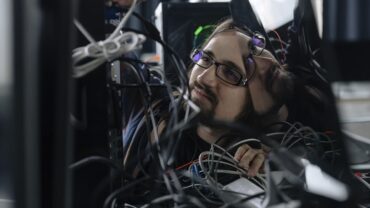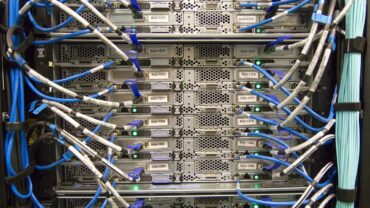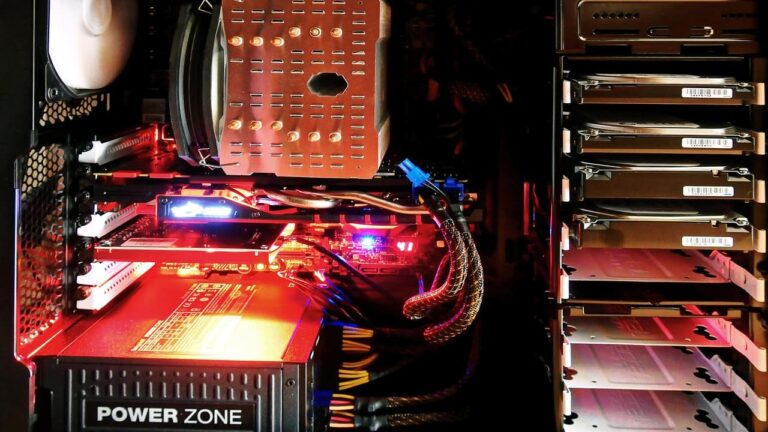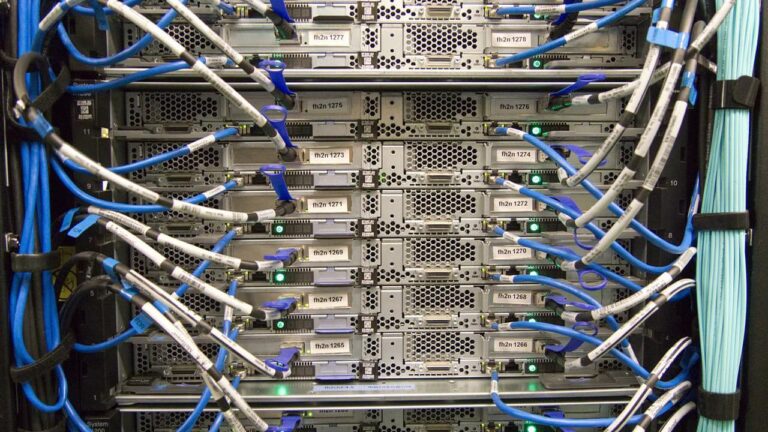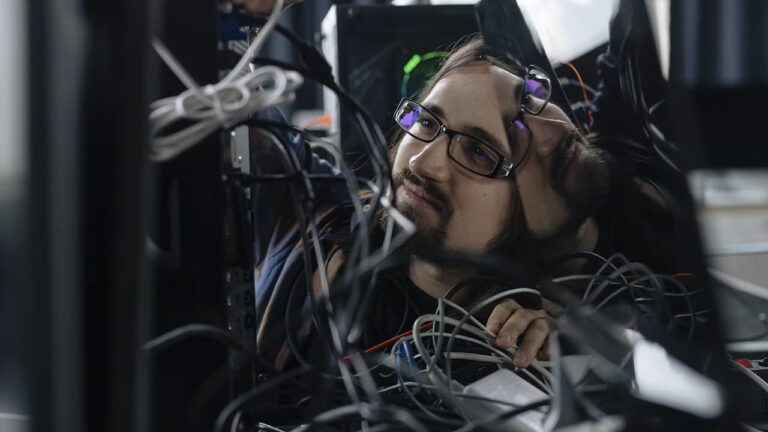The last Friday in July is System Administrator Day – in 2000, experienced sysadmin Ted Kekatos was inspired by a positive Hewlett-Packard advertisement and decided to establish a day called System Administrator Appreciation Day.
Who is a sysadmin?
A simple question for those who are employed in organizations that use PCs and the Internet (I wonder if there are still those in the world who are not?). For them, the system administrator is the person who will help the accounting department with the printer, solve the issue with the dropped network, update the working software licenses, provide the workplace, purchase the necessary equipment. To get a vague idea of what a sysadmin does, why he is bearded and wears a sweater, and what explains his love of cats, used to be mostly on Bashorg. But Bashorg is no longer the cake, so let’s talk about this important profession from an adult perspective.
In general, the main task of the system administrator can be described simply: to make everything work in the organization. He applies creativity and systems thinking to solve IT challenges in the best possible way. In contrast to the much-publicized image in networking folklore, this professional must have a high enough level of empathy to hear the person whose systems failure affects how their workday will turn out and whether they will be able to meet their goals. The sysadmin must also develop the ability to explain the essence and solution of the problem in human language, accepting as a given that not everyone can understand it the first time, and this is normal.
So a sysadmin or a technician?
Since the organization’s work depends on the timely deployment of a new server or purchase of office software licenses, as well as on the stable operation of the chief accountant’s computer, the sysadmin has to deal with an unrealistic number of “near-iteesh” tasks, and he has every day to become an “enician” – someone who comes to the rescue when “I clicked, and everything disappeared. And while technicians are usually entry-level system administrators, even specialists with rich backgrounds often have to roll up their sleeves.
But every year technology enters more and more firmly into the life of any company and becomes an integral part of its work, the degree of automation and intuitiveness of tools is growing. The level of technical literacy of employees is also growing – for many people, to solve the question of connecting to a printer or upgrade the software is no longer some kind of magic. With the development of clouds, some even predict extinction of sysadmins as a profession, and on Habra it is possible to meet numerous complaints about the depreciation and “oppsy” (honestly, I quote our own sysadmin!) profession, problems with professional growth, routine tasks. All of this leads to a discussion about the ways of development for system administrators.
Guys, you will be fine. This profession is mainly (well, at least we believe so) for inquisitive and self-learning people who love technology, following its development, willing to get to the bottom of things, to look for the root of the problem and solve it. And there are many ways for sysadmins to go if the usual tasks have become monotonous or if they want professional growth. You can develop horizontally and vertically according to the growth of tasks and responsibilities, you can go in related areas, gaining new skills. In essence, it is as if you graduate from school with a sufficient fundamental education, and from there all roads are open – you just need to choose (and yes, I’m quoting our sysadmin again!).
Network Engineer (NetOps)
If you get bored with dealing with a small office network, you can set a goal to get a level-up and administer, for example, networks of large carriers and learn on your own skin what “with great power comes great responsibility” – in this case the responsibility for ensuring that the network provided to thousands and thousands of subscribers function without failures. In practice, a higher salary, but also a greater likelihood of night/weekend duty and a greater cost of error, which translates into greater monetary loss.
What knowledge do you need to get to administer large networks? Basically, fundamental knowledge: TCP/IP stack, basics of networking, dynamic routing protocols, also you should know the specifics of hardware of different vendors (Cisco/Juniper/Mikrotik/Dlink/Huawei, etc.) – hardly you will encounter homogeneous environment in practice, so you will have to be familiar with the specifications of hardware and features of integration.
Support engineer
This is trabshooting at maximum speed, as you are used to. Speaking about our team, our engineers maintain complex high-loaded services, which can be web services of big marketplaces, streaming platforms, state online platforms or TV channels. The sysadmin mantra “make everything work” here reaches its absolute maximum – the client’s happiness, reputation and money depend on the fault tolerance of the service. And it is especially the soft skills that true system administrators should have – openness, the ability to hear and understand, to get to the bottom of the problem, the desire to help. Therefore, system administrators with these qualities, while being able to administer Linux, navigate the protocol stack TCP/IP, HTTP(S), DNS, familiar with nginx (anticipating the joke – it is not us, but the other guys) and inquisitive enough to dig in the chef/puppet and look through the matrix from foreign sources, we always need and we are constantly looking for them. You can fix your secretary’s laptop, and you can also trawl through the most popular services, solve non-standard tasks and communicate with CTO-level customers.
Technical Account Manager
Let’s imagine that a company sells a complex, customizable IT product. Everything is classic – developers develop the product, salespeople (accounts) sell it. Developers want to focus on what they do best (code) rather than communicate with potential customers, and accounts aren’t able to dive as deeply into the technical intricacies of needs analysis to properly communicate the task to developers. To make this channel of communication work, you need a hybrid of these two worlds – a Technical Account Manager (TAM).
What is the task of the TAM? He is the liaison who “translates” the customer need into the language of the developer, selects the right solution in terms of technology, and monitors the implementation to keep everyone happy. TAM in tandem with the salesperson, who is responsible for the commercial side of the process, has to offer the right technology, custom solution, product, make an implementation plan, run the pilot, monitor the implementation, suggest improvements.
What does TAM need in terms of skills and can a system administrator find them? First of all, a deep understanding of the technical features of his product, perfect knowledge of its functionality, both current and future. Also a broad outlook and erudition in IT, to be able to solve non-standard tasks. And, importantly – the ability to communicate, to ask, to interpret, to present their point of view. In my opinion, a standard set for those who solve simple tasks every day, but want more. Do you recognize yourself? We have an opening, by the way…
Information Security Engineer
Year after year, businesses, regardless of size, are increasingly exposed to cyberattacks: in 2019, 81% of cases affected legal entities – mainly government agencies and financial institutions, medical, educational and scientific enterprises (this is from the latest Positive Technologies report). Considering that in recent years even the most old-school representatives of state IT have been actively digitalized in our country and in parallel there are new cybercriminal ways to complicate the life of companies, those who decide to devote themselves to information security have room to develop, and demand for such specialists is growing, not keeping up with the pace of threats.
A sysadmin who is already well aware of the IT infrastructure and understands the importance of timely software updates, differentiation of access rights, disaster recovery, can go much further than installing anti-virus on users’ PCs. I don’t know a single savvy IS person who hasn’t previously experienced the delights of sysadmin life.
What is important and what does a sysadmin need to learn to specialize in the infobase? Of course, a serious place will ask you for a recognized certificate – for example CompTIA Security+ or CISSP (Certified Information System Security Professional). It’s important to learn the fundamentals and focus not only on learning security systems, but also on ethical hacking practices (hacking and exploitation of vulnerabilities). And you’ll also need to “kill” your inner sysadmin a bit: usually the main goal of a sysadmin in an organization is to make things work, and fast, but for an IS engineer the priority is always reliability, and that always implies limitations in the ways of doing things.
DevOps engineer
A classic systems administrator assembles an IT system from off-the-shelf hardware and software elements and makes “everything work”: installs updates, conducts routine operations, and so on. But he has nothing to do with the development processes and operates the code that has been provided to him – that is, Ops in its purest form. Experience on the operations side, combined with immersion in development processes and mastery of a number of specialized methodologies and tools, allows a system administrator to develop into a DevOps engineer – a highly sought-after and well-paid specialist in today’s world of complex architectures and high development speed.
His task just like a system administrator’s is to “make everything work” but in case of DevOps it has additional levels of complexity: a DevOps engineer not only ensures stable operation of production systems but is also responsible for making sure that all development and operational processes are as optimized and efficient as possible – that is, that developers write code with the fine details of architecture and underlying infrastructure in mind, without wasting their expensive time on “monkey labor” and that routine operational work is automated as much as possible
A DevOps engineer needs to understand the intricacies of architecture and operations processes in order to develop technological requirements for a software product. He uses tools for automation, monitoring, deployment of test environments, change management. He can assess security risks, control code changes and follow-up support, manage quality and changes.
To act as a DevOps engineer, you will need to understand quite a lot and be able to combine part of the development processes and part of the operational processes. You also need to learn how to confidently operate a variety of tools from Jira to CI/CD pipelining tools like Jenkins and Gitlab CI/CD, from monitoring tools like Zabbix and Prometheus to configuration management tools like chef/puppet/ansible. The DevOps engineer also uses a variety of automation and orchestration tools – you can’t list everything. All this is overlaid with a number of important soft skills that system administrators can find in themselves: a readiness for continuous development, a desire to debug and automate themselves and other people and processes, an analytical mind.
System Architect
We’ve already touched on the question above of whether universal migration to the cloud will kill the sysadmin function. Yes, the use of cloud services by organizations of all sizes and the automation of a large part of routine tasks removes some of the usual work from the sysadmin, but nevertheless, the cloud must also be administered by someone. You need to understand the principles and features of cloud functions and services and APIs to make the right decisions about their applicability to an organization’s IT needs. And if you want to make decisions about designing such systems and solutions instead of watching them work and bang on, the logical step is to develop into a systems architect.
A systems architect analyzes the technological direction of an organization and determines the best technology and solutions to build an IT infrastructure, taking into account budget and scalability. He researches, identifies and tests the necessary solutions, and develops and documents integration and migration strategies. In some respects, the systems architect’s tasks overlap with systems administration, but the level is elevated: it’s no longer “make it work” but “design something that will work.”
It is difficult to determine exactly what technical competencies a systems architect should have – much depends on the technology stack and the objectives of the organization. For example, one job may require him or her to have in-depth knowledge of the network and various carrier-class equipment, virtualization environments, DBMS, storage, and even regulatory requirements. But this will vary from case to case. A systems architect must be able to think intelligently, in a structured and logical way (hello, sysadmin soft-skills), have knowledge of design methodologies, design tools, system integration principles. Yes, if you are not experienced in administering complex IT infrastructures, it will be a long way for you. But everything is possible with the acquisition of experience and additional skills.
